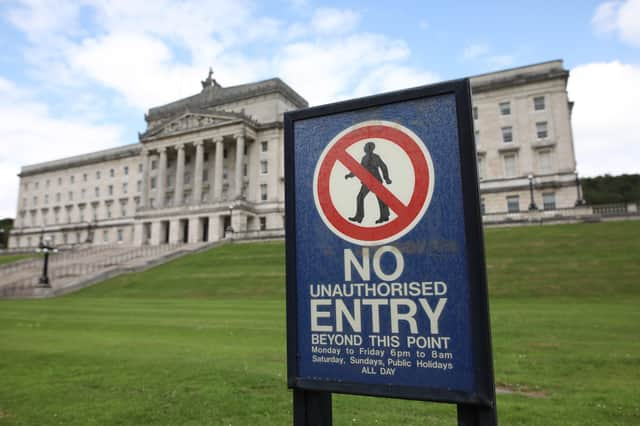Finance officials displayed ‘indifference’ to protecting public money - ‘it is clear BT ran rings around civil servants’


The Public Accounts Committee (PAC) investigated the department’s handling of online services contracts with BT and concluded the telecomms giant may have made large profits at taxpayers’ expense.
Contract extensions meant the the Executive has increased its payments by over £120 million, more than double the original contracted values, but that does not take into account the effect of inflation over two decades.
Advertisement
Hide AdAdvertisement
Hide AdThe department said additional sums paid to BT were for additional services and projects and all were individually assessed as being value for money.
The PAC said: “In the committee’s view, when it came to protecting public money, there was a culture of indifference.
“This was epitomised when the NIAO queried significant overruns on the contract and were met with a ‘so what?’ response.
“It was evident to the Committee that DoF staff involved with these contracts did not have the necessary commercial skills or experience to negotiate the best deal for citizens or to manage contracts.”
Advertisement
Hide AdAdvertisement
Hide AdThe report focused on a project delivering digital transformation to the Northern Ireland Civil Service, the NI Direct interface for accessing government services online, as well as LandWeb, a project to provide online access to Land Registry records.
The committee identified that in the LandWeb Project, the department did not secure open book accounting, meaning greater transparency on the part of BT.
Its report said, as a result, the department had no idea what profits are being made by a supplier and was therefore “negotiating blindly”.
It said: “Equally damning was the discovery that, in relation to the NI Direct contract, where open book accounting was secured, contract management procedures did not extend to routinely examining BT’s books.
Advertisement
Hide AdAdvertisement
Hide Ad“Therefore, Department of Finance had little idea of BT profit margins and the Committee was concerned these could be large.
“It is very clear that BT ran rings round civil servants.”
The committee made recommendations including an audit of the department and wider civil service’s culture.
It added: “The Committee was left with no option but to conclude that significant opportunity existed for BT to generate very large profits from both contracts, at the expense of citizens and fee payers.”
It said expiry dates for contracts should be known and planned for.
Advertisement
Hide AdAdvertisement
Hide AdThe BT contract funded a contact centre, developed 13 major applications, two major consultancy contracts and had cross-cutting applications across various central government departments.
The department said: “The Department of Finance is committed to protecting the public purse and ensuring staff have the necessary commercial skills to manage contracts and negotiate the best deal for citizens.”
Work is already underway on implementing the PAC recommendations which covers historical contracts dating back to 1999 and 2012.
The PAC report acknowledges the progress and improvements the Department has made, including more effective management of contract expiry dates and expenditure levels, a reduction in the number of direct award contracts, improving the professionalism and skills of contract and project managers, the appointment of a commercial director to advise on procurement and contract management, tapping into commercial expertise within the Cabinet Office, changes to the audit and risk assurance processes and ongoing work to review the management of strategic suppliers.
Advertisement
Hide AdAdvertisement
Hide AdThe department added: “The £120 million figure cited by the PAC does not take account of the effect of inflation, especially on the LandWeb contract.
“The estimated value of the contract for the core LandWeb services in 1999 prices was £46 million and the cost to date of those services, when adjusted to 1999 prices is just under £45 million.”